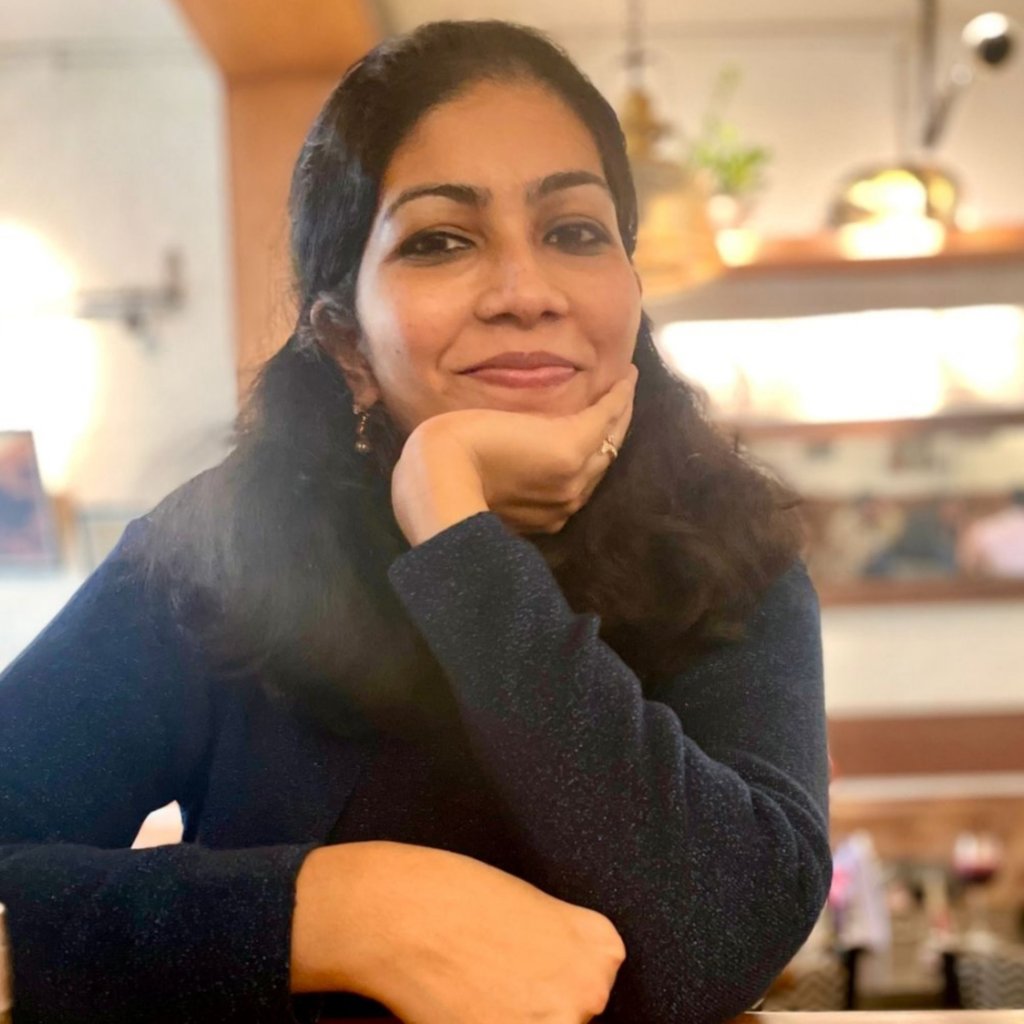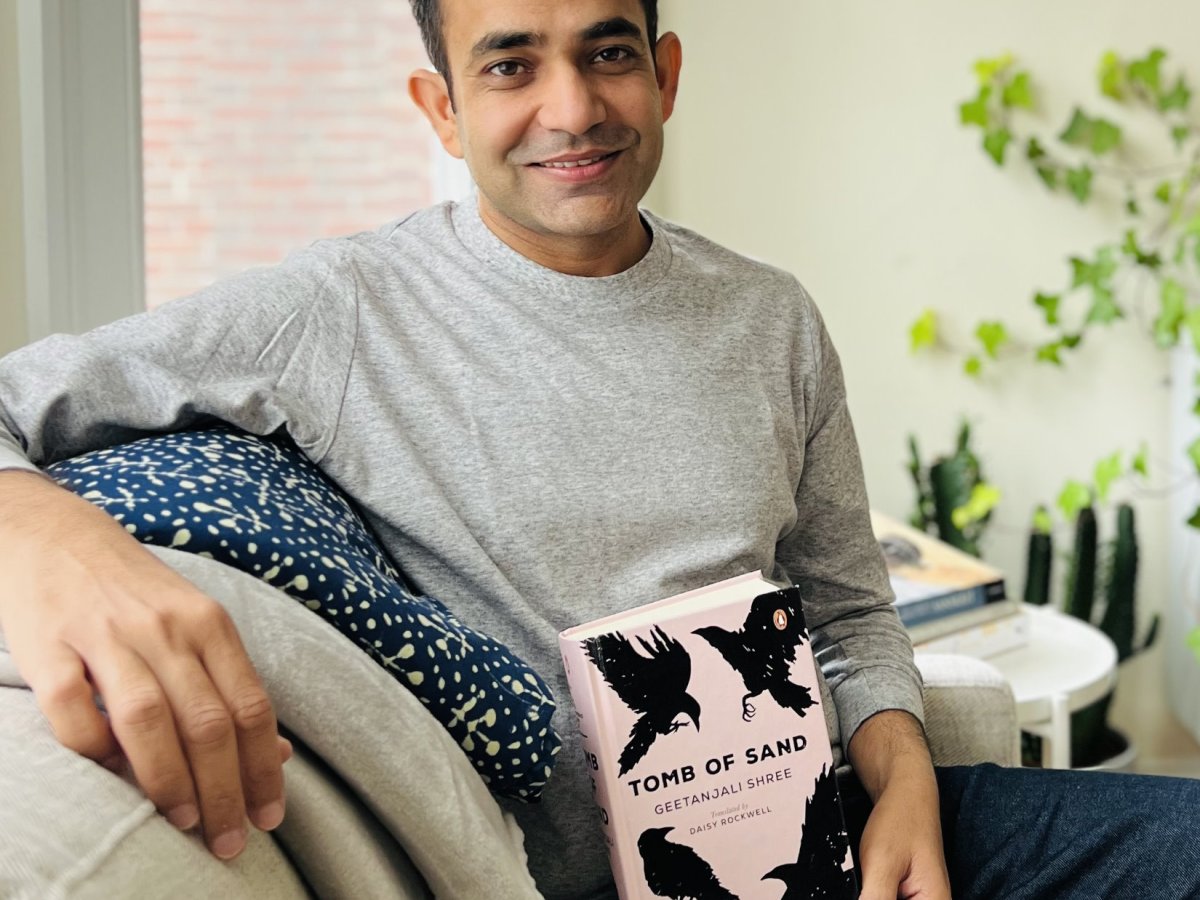Based in Delhi, Rashmi Menon is Managing Editor at Amaryllis, an imprint of Manjul Publishing House. She’s someone who loves books and enjoys working in the publishing industry, where she’s spent around 15 years. Since she’s in the thick of the action when it comes to books and publishing, we caught up with her for a chat on how the book publishing business in India has evolved over the last few years, some key trends in publishing, the opportunities that exist today for relatively smaller publishers in India, and the increasing popularity of translated works. We also got her take on digital formats like eBooks and audiobooks, and whether bookshops are here to stay despite relentless competition from online retailers.
You have spent about 15 years in the book publishing business. What was it that drew you towards the publishing business to start with? What was it about publishing that you found most interesting?
I’ve loved reading books ever since I was a child. When I completed school, I didn’t know what I wanted to do, but I knew that it had to do something with English. After completing my Masters in English literature, getting into a publishing house seemed to be the logical next step. And that’s where it all began. I started working at Rupa as an editor and PR executive, which helped me understand both editorial and marketing. Needless to say, I enjoyed both. It’s been an interesting journey thereon. The commissioning and editing of every book is an experience. Nearly every author I have worked with has become a good friend, and every book has taught me something. There’s always a book to look forward to. What I find most interesting is coming up with a book idea, finding the perfect writer to execute it and finally seeing it in print. It’s an extremely satisfying feeling.
How, and in what ways, has book publishing in India changed and evolved in the last 10 years? Are publishers now more willing to take risks and take a chance on newer, younger authors? What kind of impact has self-publishing / guided publishing had on traditional publishing?
From the way we read books, to the way they are sold, distributed, published, and marketed, everything has changed. You can read your favourite book on Kindle and as small a device as your smartphone. If you don’t want to look at a screen, you can listen to an audiobook while exercising or doing any other activity. With Kindle Direct Publishing (KDP), authors can reach their readers directly, without needing to go through the lengthy process of getting a traditional publisher to play the intermediary. Self-publishing platforms are much more popular and are thriving. Marketing has become a very serious gamechanger. Publishers can no longer rest on the quality of writing and content. Making a book successful requires help from the entire digital and non-digital community! A few seconds is all we get to try and grab the attention of a potential customer – whether she is browsing on an online platform, or at a bookstore, that doesn’t matter.
Literary agents have now become an integral part of the Indian publishing system. This was not the case earlier. More publishers prefer to commission books via literary agents and there is a steady rise in the number of authors preferring to approach publishers via literary agents.
Publishing has become more egalitarian in its approach. Before what I call the ‘Chetan Bhagat era,’ publishers were restricting themselves to publishing what was considered to be high-brow. After Chetan’s first book, the market magically opened up to a variety of writing and debut authors. Publishers started experimenting with genres. Translations have become more popular. Be it Indian language translations of international bestsellers (which is what Manjul Publishing House is known for), or translations of brilliant books written in Indian languages into English, readers are open to reading fresh content.
Having said that, the market isn’t as friendly as it used to be for debut fiction authors as it was ten years ago. Publishing fiction is more of a gamble now than ever before. Publishers are open to take a chance on new authors if the content is promising and if the authors have a strong presence on social media or are willing to contribute enthusiastically towards marketing efforts.
And yes, people are writing and writing fearlessly, if I may say so! Traditional publishers work with small editorial teams and can only bring out a certain number of books per year depending on their publishing plan. Even if we put all the traditional publishers together, they are not enough to cater to the increasing number of writers who want to get published. Self-publishing platforms have given a lot of confidence to writers, many of whom have tasted huge success via self-publishing. Self-publishing platforms are gaining steam but traditional publishers are as busy as ever. And yes, guided publishing is becoming a trend. It’s lucrative but not something that a publisher can completely depend on all the time.
What are some key trends in the book publishing industry in India, which you may have observed in the last 5-6 years?
Non-fiction, especially self-help and personality development, has been doing quite well for the past few years. I think the pandemic has been a major contributor to this trend. The last few years have been extremely stressful for most of us. People want to read books that help alleviate stress or aid in getting ahead, becoming smarter, quicker, more productive. Business books, memoirs and biographies of Bollywood stars and famous/infamous politicians, narratives of lesser-known freedom fighters, historical and controversial figures, military history, stories that showcase military valour, etc., have been sources of steady business. Fiction has taken a big hit but that doesn’t mean there is no room for fiction. Tomb of Sand hit the headlines and made a cosy space for itself in every bookshop. Historical and mythological fiction too continue to do well.
Translations are doing very well. More publishers are now open to publishing gems from regional languages that have hitherto remained unknown because of language barriers. At Manjul, it has been our constant endeavour to bring the best of books, both from international as well as our domestic markets, to readers who prefer reading in vernacular languages. There is now a significant market for eBooks and audiobooks of these translations too. We saw a spike in eBook sales not just for our English books but also for our translations, especially during the pandemic.

In India, what are some of the biggest opportunities today for relatively smaller publishers? Are there any niches / genres that bigger publishers don’t want to get into and where smaller (and more nimble?) publishing companies can work profitably? How does Amaryllis differentiate itself from some of the bigger publishing houses in the country?
Big or small, all publishers are experimenting to a certain extent. But a smaller publisher might have the advantage of having what no other publisher can offer. For example, Manjul Publishing House, the parent company of Amaryllis, has over the years, single-handedly created a niche market for high-quality Indian language translations of international bestsellers, and has emerged as the front-runner in the translations publishing segment of the Indian publishing industry. When we acquire a book, we can offer to publish it not just in English but several Indian languages too, depending on which regional pockets we see it succeeding in. We have published the books of authors such as Chitra Banerjee Divakaruni, Yuval Noah Harari, JK Rowling, Rhonda Byrne, James Clear, apart from many other famous names in multiple Indian languages, thus catering to the diversity that is India. Apart from this, there are of course, many advantages. Smaller publishers are more flexible. They can shift gears and expand into other segments that have potential and experiment with genres. Over the past few years, a lot of international academic publishers have either shut down their offices in India or cut down on operations. This leaves a big vacuum which independent Indian publishers can easily tap into. The test prep market is another big segment in which local publishers have a very strong hold. The overheads of MNCs are quite high and they work according to fixed terms, whereas smaller publishers have lesser overheads, are open to negotiations and do not necessarily have to stick to set procedures.
The wind beneath Amaryllis’s wings is Manjul Publishing House and its solid presence in the translations segment. When Amaryllis commissions authors, it has the ability to offer multi-language deals. We are open to the idea of translating from other foreign languages too. A case in point being the internationally bestselling author Bernhard Moestl’s Shaolin: How to Win Without Fighting. We acquired the book from a German publisher, got it translated into English (a huge investment and a first for us) and are now bringing out the book in three other languages – Hindi, Malayalam and Marathi.
Our list is selective and we do a limited number of books per year. This ensures that every author of ours gets personalised attention. We give a lot of time and attention to bringing out fabulous covers and beautiful book layouts. We are also quite open to dabbling in different genres. Though our list mainly comprises commercial fiction and non-fiction, we recently published a book that is somewhat academic in nature. Indian Roots, Ivy Admits: 85 Essays that got Indian Students into the Ivy League and Stanford by India’s leading education counsellors Viral Doshi and Mridula Maluste, has become our perennial bestseller. The book has helped thousands of students ease their common app essay writing anxiety and won us heart-warming feedback.
What is your own, personal, take on relatively newer digital formats like eBooks and audiobooks? With a lot of young people preferring to read on devices like the Kindle, do you think it’s inevitable that all traditional book (print) publishers will also get into publishing digital formats at some time in the near future?
I think eBooks and audiobooks will harmoniously co-exist with printed books. They are becoming popular for sure, but physical books still very much rule the roost. Especially when it comes to academic books, physical books are here to stay. In a country like India, not everyone can afford a Kindle or an audiobook subscription. eBooks and audiobooks are gaining momentum but continue to be embraced only by a certain privileged class. An eBook or audiobook can never be personally signed by your favourite author, they can never have the fragrance of paper or give you the joy of tucking in a flower or a beautiful bookmark or a little note that you discover years later. I know this sounds very romanticised but I am pretty sure a large section of book lovers falls in my category!
Most publishers have already started publishing in different digital formats but I don’t see a future where we shift to only one platform. The industry will continue to cater to varied tastes and preferences.
Given the profusion of websites that sell books – both new and used – do you think there are still any compelling reasons for people to go to an actual bookshop? Given the benefits of significant discounts and free home delivery etc. that online retailers offer, do you think bookshops will still be relevant in five or ten years from now?
When you know exactly which book you want, online portals seem to be the best choice for customers. But for passionate book lovers like me, and for parents who want to encourage their children to read and fall in love with books, bookshops are still very much in vogue. I’m quite certain that bookshops will survive the technology onslaught. With the help of creativity, innovation and collaborative efforts, everything is possible. Not everyone is looking only for discounts and doorstep delivery. Many of us are looking for an all-round, sensory-rich experience. A case in point is Kunzum Books. They have beautiful bookshops and are always coming up with new ways to enhance a customer’s bookshop experience. Collaborating with publishers, authors and artists, Kunzum keeps organising literary gatherings, which is a wonderful way to encourage reading. Post pandemic, quite a few bookshops have started making headlines and this trend is quite encouraging. I agree that it is very easy to order from online portals and the discounts are very attractive, but nothing can compare to the joy of browsing through books at a brick-and-mortar shop. And if you add a steaming cup of coffee to this and top it with enthusiastic staff that can recommend books that suit your tastes, that would be the icing on the cake!
Do you yourself read a lot? What kind of books do you like to read? Any favourite genre? Favourite authors? Anything that you’re particularly looking forward to reading this year?
I breathe books! Because of my profession, I am reading nearly 24/7. After work hours, I like to listen to audiobooks while taking a walk, working in the kitchen or my favourite – fall asleep while listening to a book! My favourite genre keeps varying according to my moods. Sometimes, I’m on a Jane Austen or Leo Tolstoy spree. Sometimes I read popular non-fiction just to understand why they are doing well, to understand the market better. Though they are not my favourite genre, I think I have ended up learning from them. I also like reading children’s books occasionally. My all-time favourite book is To Kill a Mockingbird and therefore, Harper Lee is my favourite author. The most notable books I’ve read in the last couple of years are Eleanor Oliphant is Completely Fine by Gail Honeyman, The Boy at the Back of the Class by Onjali Q Rauf, All Those Who Wander by Kiran Manral, Shaolin: How to Win Without Fighting by Bernhard Moestl and Atomic Habits by James Clear.
I’m not sure whether I am looking forward to a particular book. I would love to be surprised by a debut author who stirs up the market and whose books fly off the shelves. More than anything else, I am looking forward to reading and publishing the next big bestseller in 2023.
adventure advertising Allahabad Apple astrology audiobooks Banaras best-of lists Bombay book marketing business Calcutta cheap reads cityscapes corporate culture design fiction food Hinduism hippies history India Japan journalism journalists libraries literary agents memoirs memories money Mumbai music my life with books Persian photojournalism Prayagraj publishers publishing science-fiction self-help technology travel trends Varanasi wishlists







